OUR BLOG
Filter products
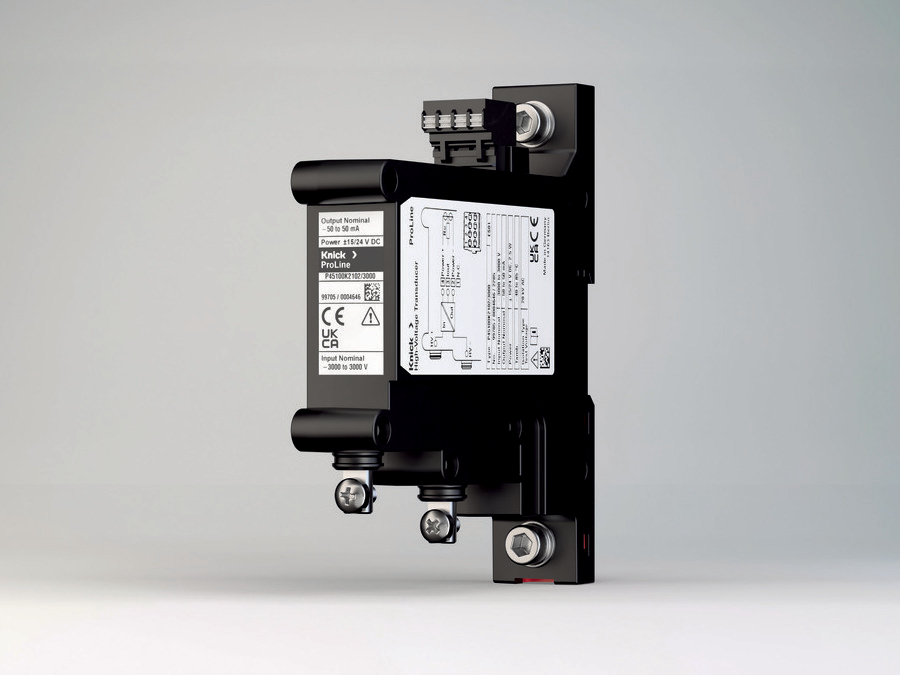
P45000 SIL 2 / SIL 3: Voltage measurements in applications with functional safety
Knick offers a new future-proof solution for modern energy infrastructures: reliable, flexible, safe.
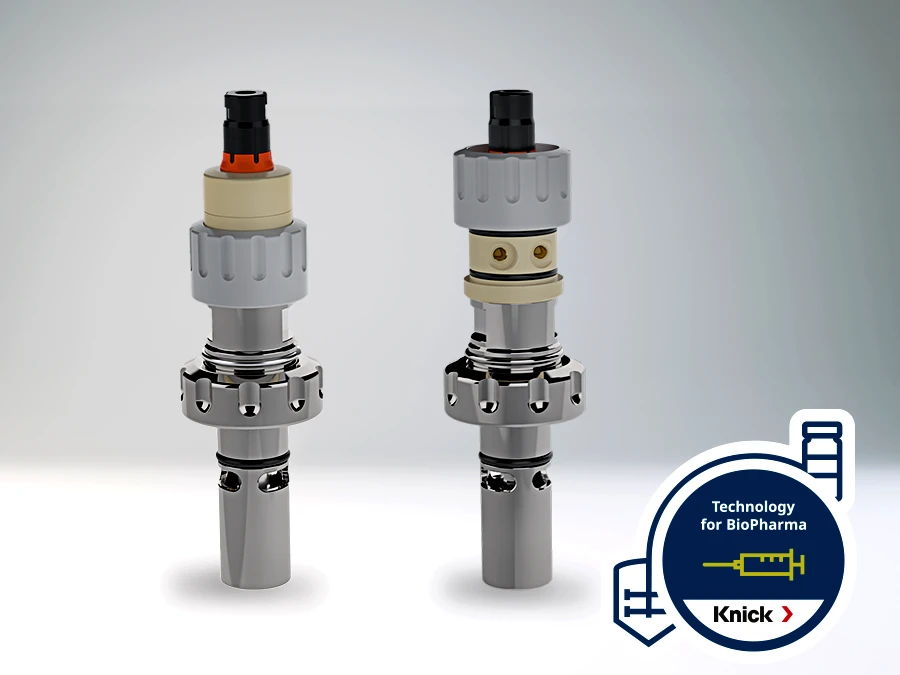
SE605H Conductivity Sensor with CondCheck
The SE605H conductivity sensor with CondCheck enables USP 645 verification without interrupting the measuring chain.
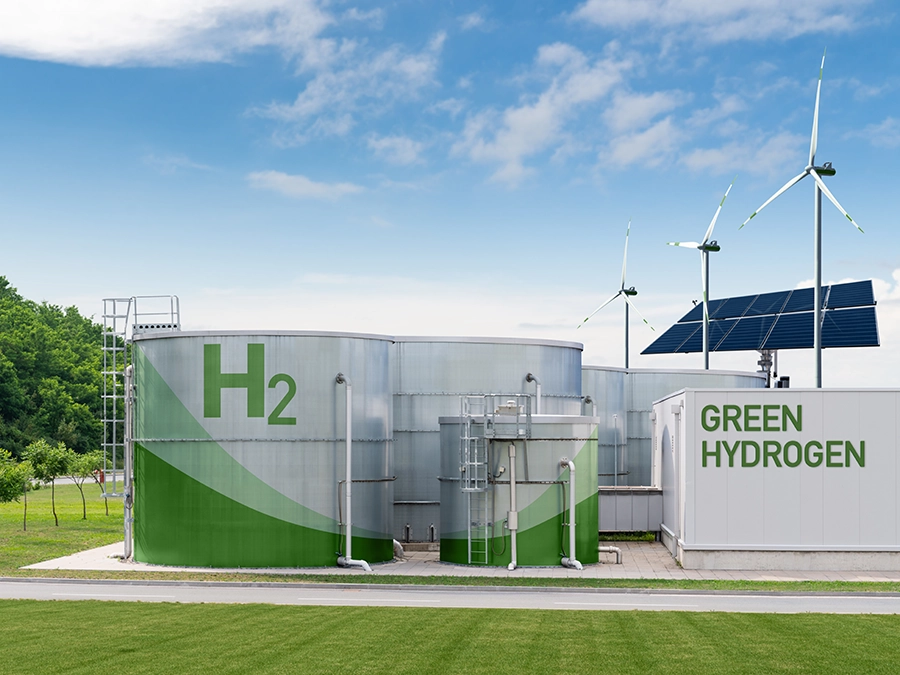
Stack and String Voltage Measurement in Electrolyzers and Fuel Cells
Voltage, current and temperature measurement in electrolyzers with P40000 series high voltage transducers
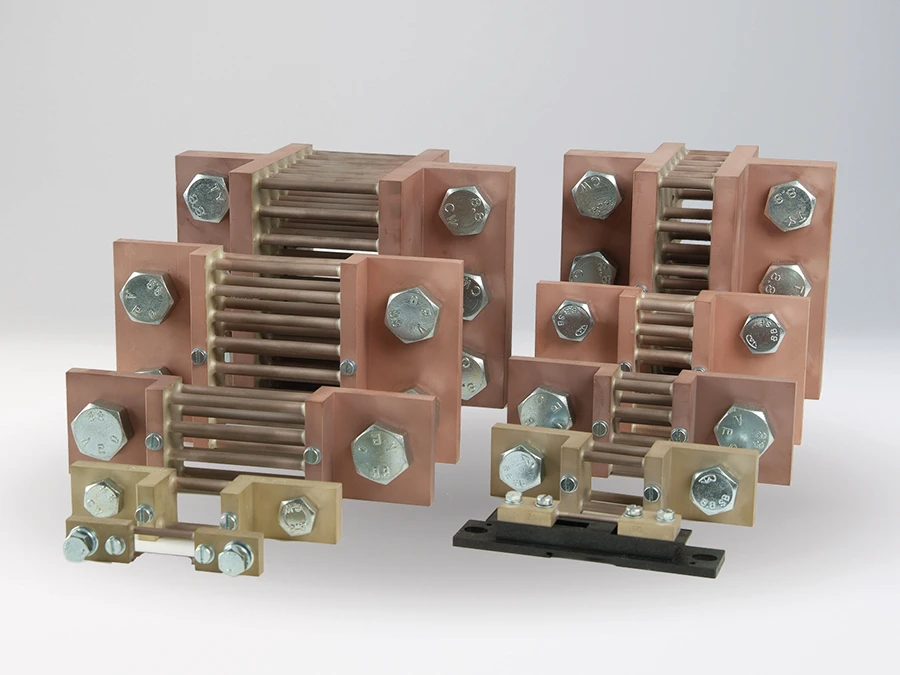
Sept 2024
New 30 mV Shunt Resistors for Knick Transducers
Knick is expanding the accessory range for its high-voltage transducers with immediate effect by adding shunt resistors with a 30 mV voltage drop

Innovations at InnoTrans 2024 for rolling stock and DC traction power supply
At InnoTrans 2024 Knick presents electrical measurement solutions for rolling stock and DC traction power supply applications
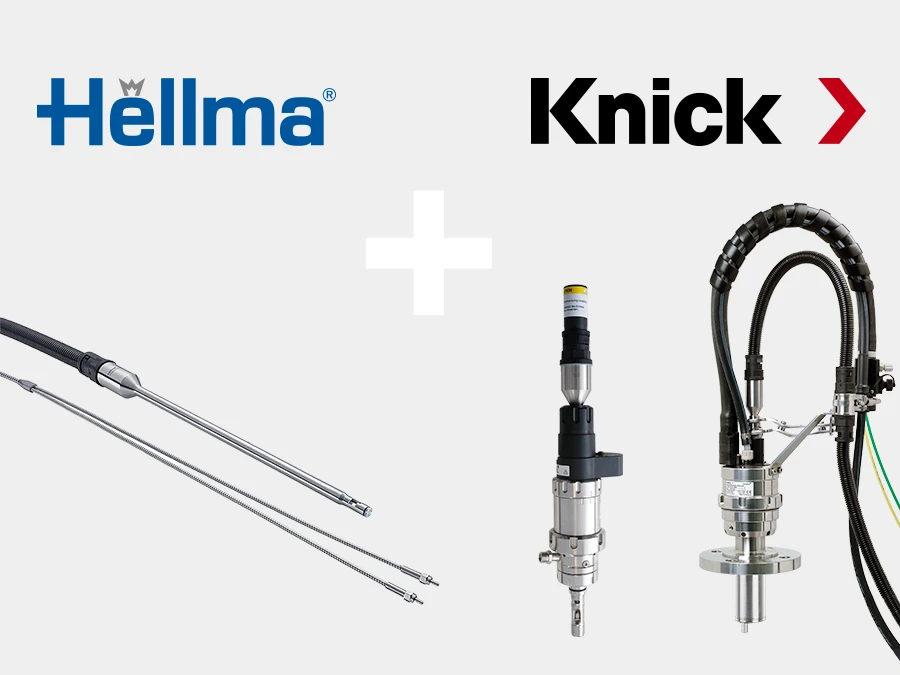
Hellma Spectroscopy Probes and Knick Retractable Fittings
A strong team for more efficiency and safety in production and manufacturing processes with spectroscopy analytics
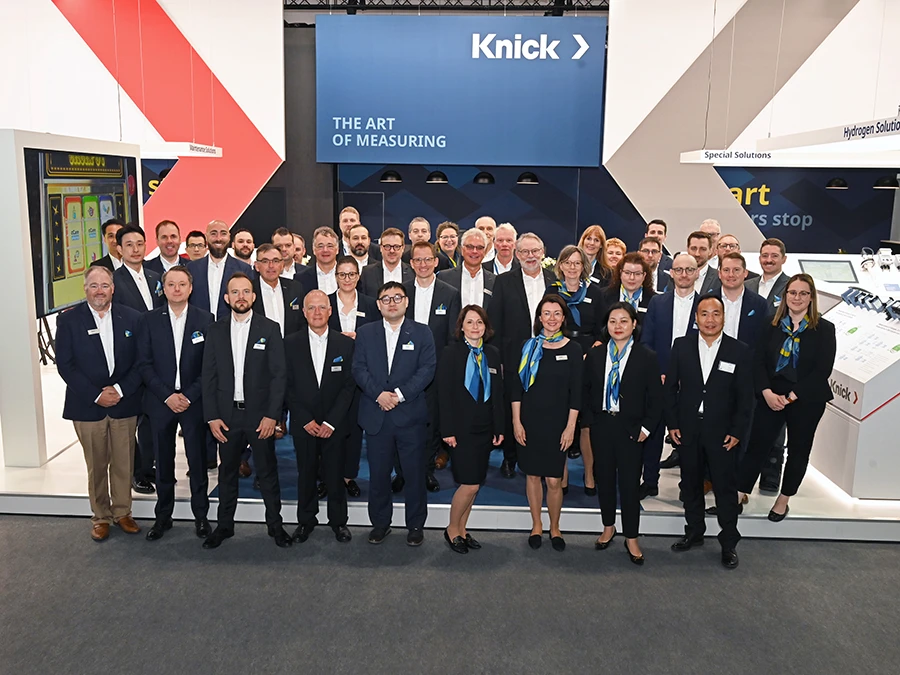
ACHEMA 2024 - Review and Impressions
A brief cinematic retrospective of our trade fair booth, Knick’s international team, and a successful booth party.
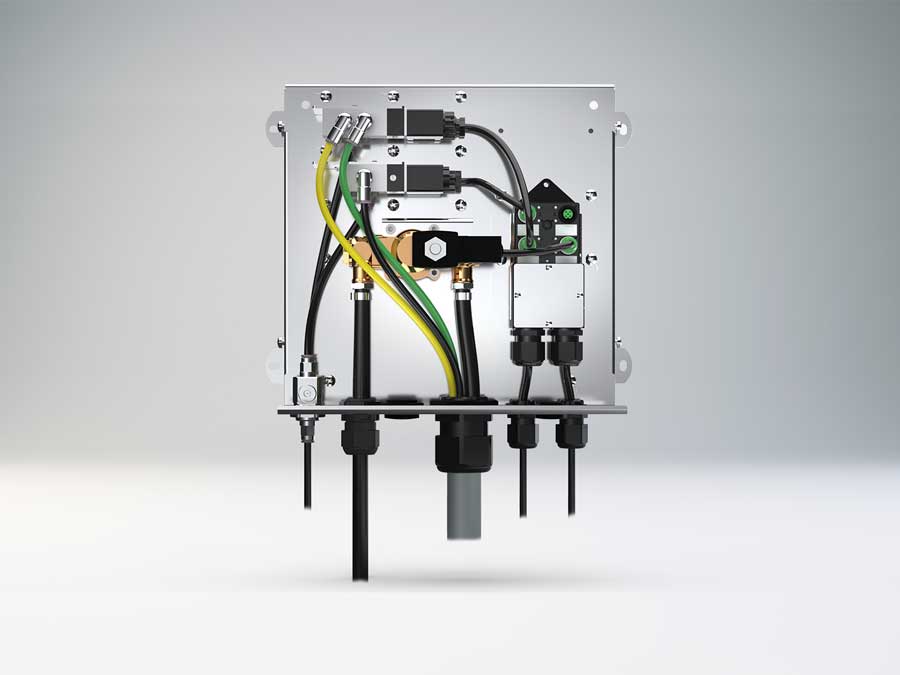
Uniclean 700 Series - Modular control system for automated sensor cleaning
With the Uniclean 700 series, Knick is introducing a modular control system, that can be installed very quickly and cost-effectively as a flexible entry-level solution for automated sensor cleaning.
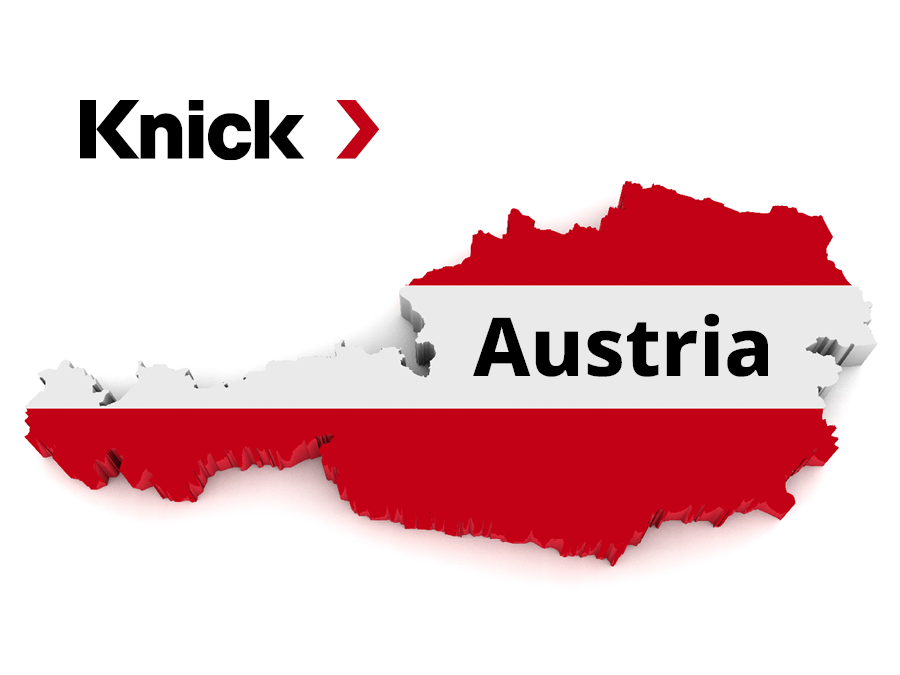
Dec 2023
Knick Austria - direct customer contact in Austria from 2024
Reorganization of sales in Austria and new contacts in the field of process analytics and interface technology
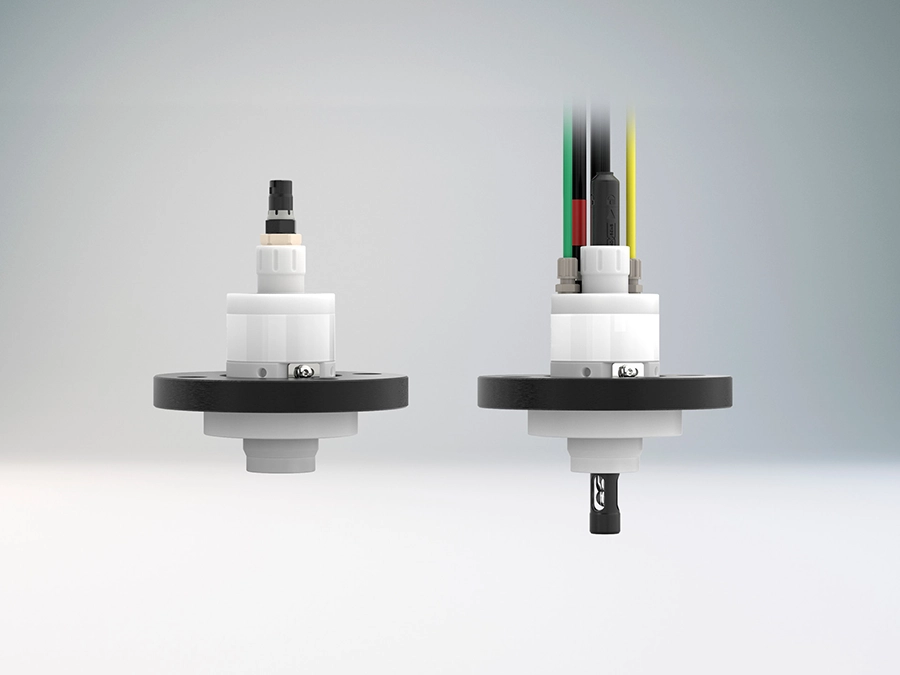
Robust WA111 Retractable Fitting Made of Plastic for Highly Corrosive Operating Conditions
The plastic WA111 retractable fitting is a robust and cost-effective solution for corrosive processes and environments. It is equipped with a secure lock function and multiple nozzles for thorough sensor cleaning.
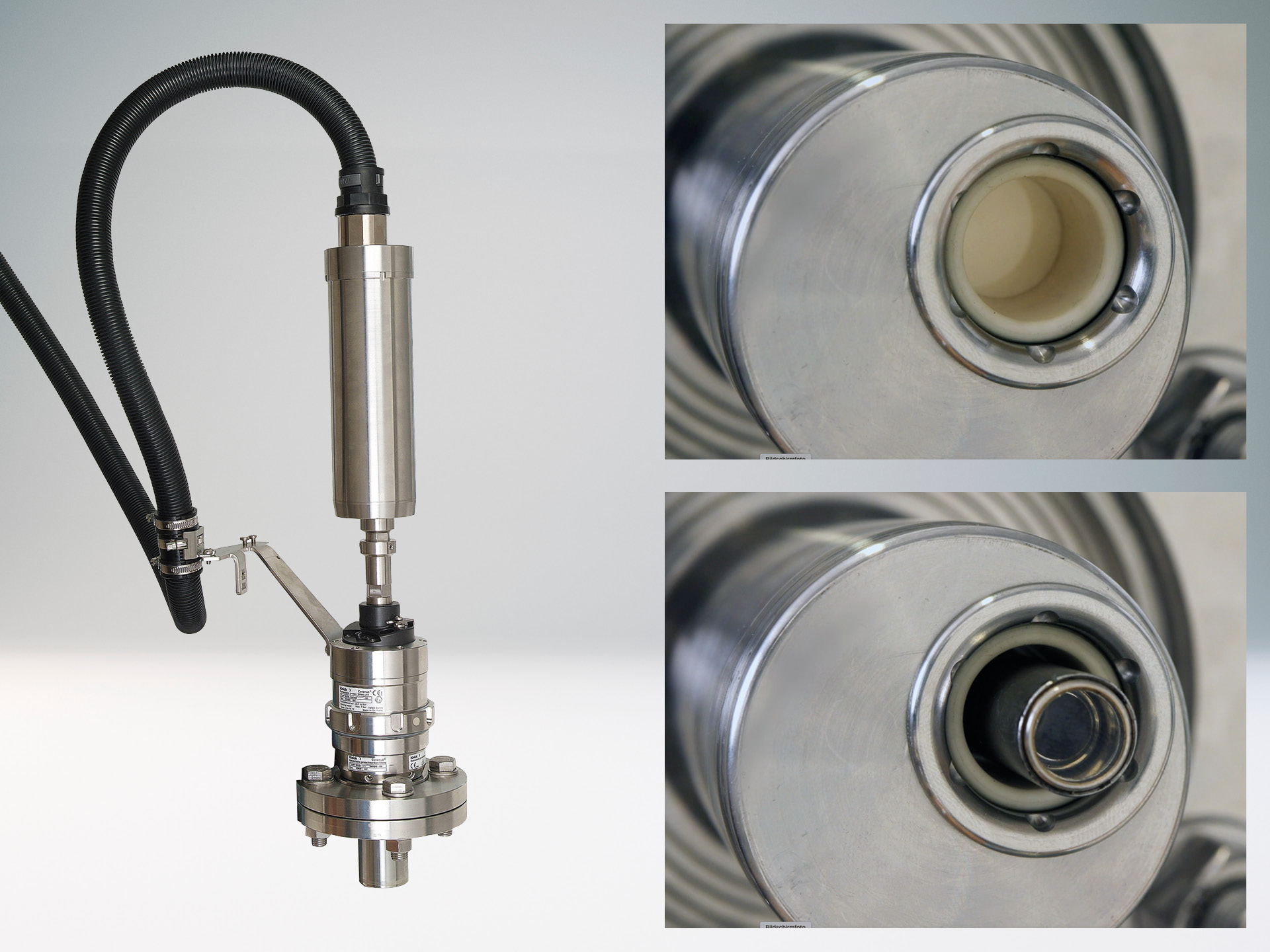
Successful joint project : Knick developed the special Ceramat WA 155 retractable fitting for optical probes from SOPAT
In cooperation with SOPAT, Knick developed a special Ceramat fitting for optical probes for automatic cleaning in fouling processes.
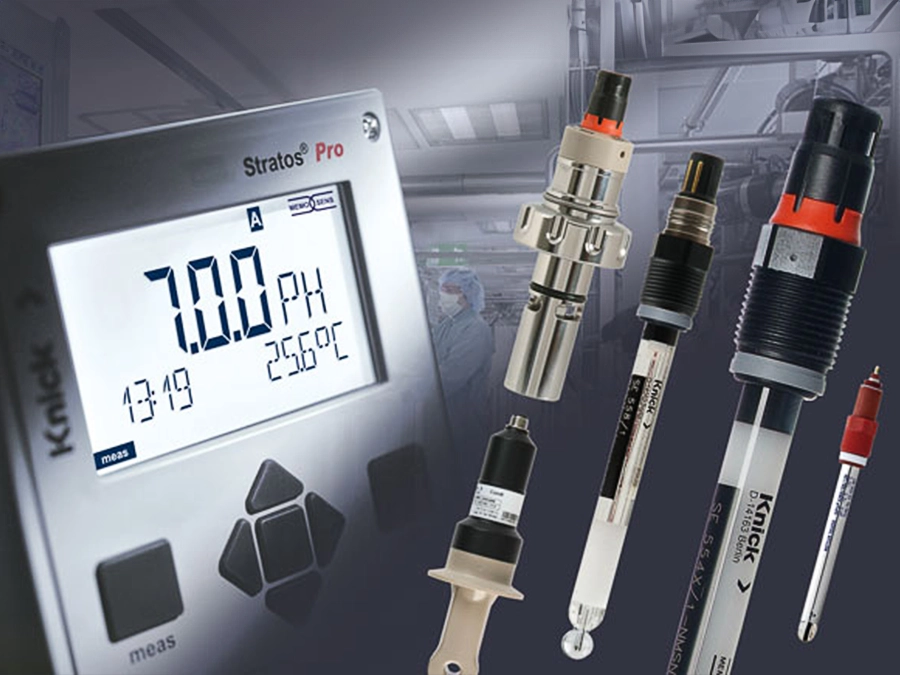
pH and conductivity measurement in vaccine production
Pharmaceutical contract manufacturer relies on Knick's transmitters for modular production plants for Covid-19 vaccines.
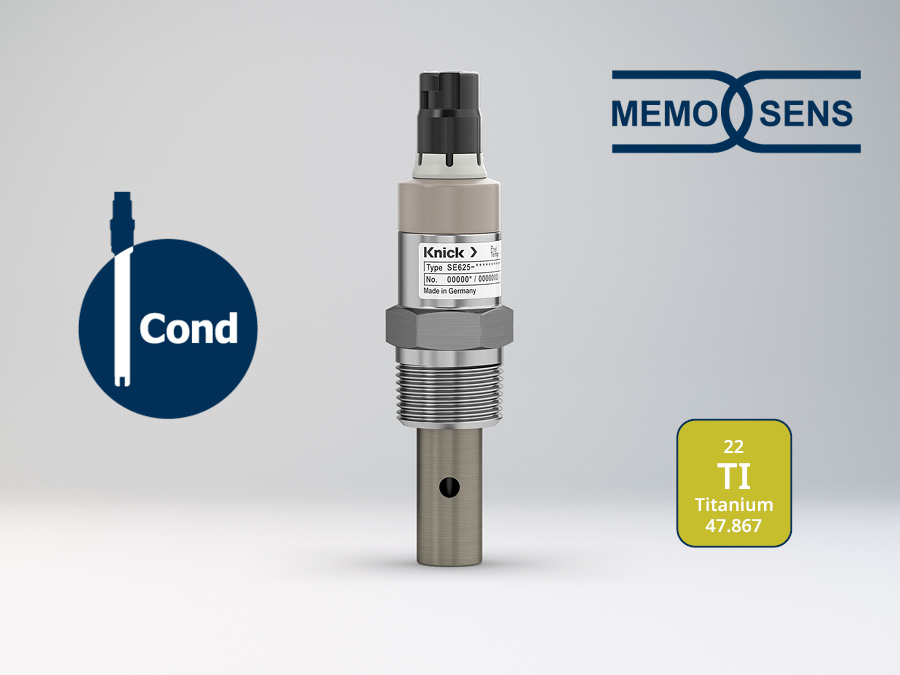
Sturdy 2-Electrodes Conductivity Sensor SE625 with Coaxial Electrodes made of Titanium
The SE625 ensures reliable and accurate determination of the conductivity of ultrapure water in the semiconductor industry.
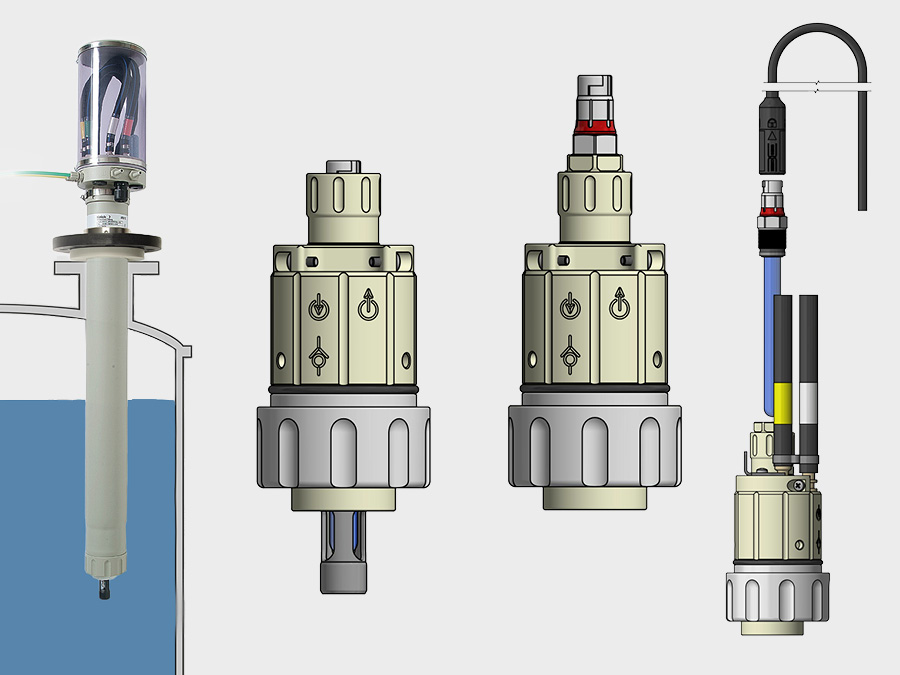
Sensor Adapter with Lock Function Enables Safe and Thorough Cleaning
Sensor adapter with locking gate for safety and thorough cleaning of sensors in the immersion fitting ARD75 without the need
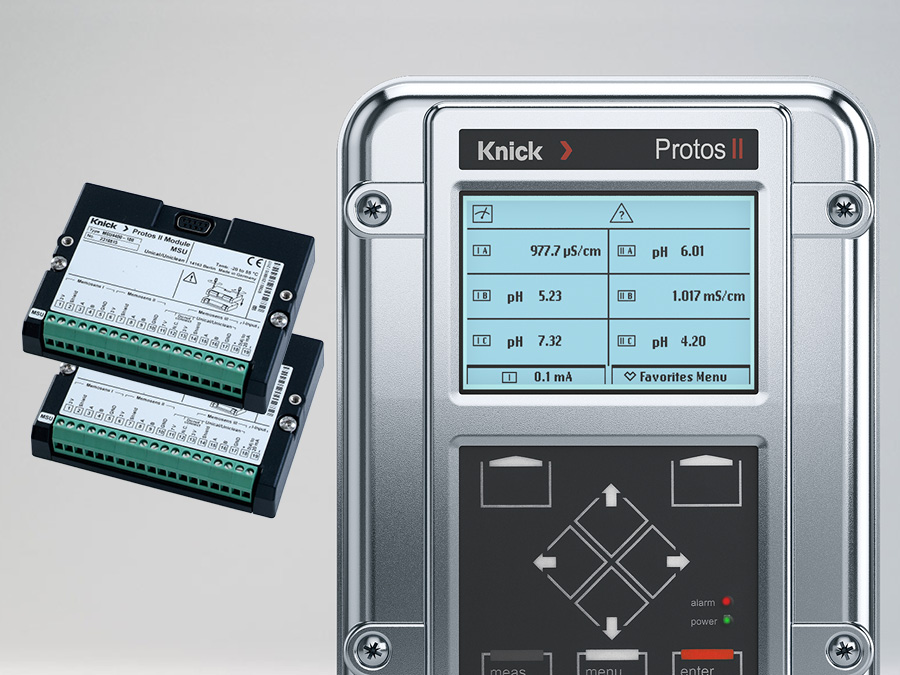
Up to six Sensors on one Transmitter Protos II 4400 via Modul MSU4400-180
Users can now connect up to six Memosens sensors simultaneously.
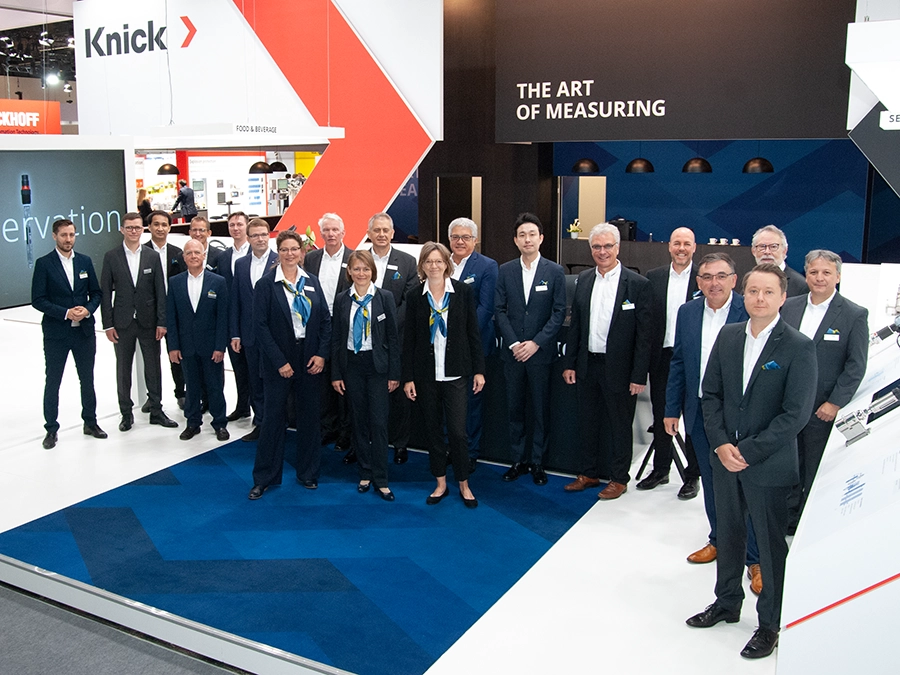
ACHEMA 2022 - Knick at the world forum for the process industry
In August 2022, the international process industry met at the ACHEMA. Knick presented the cCare system and industrial applications in a new concept.
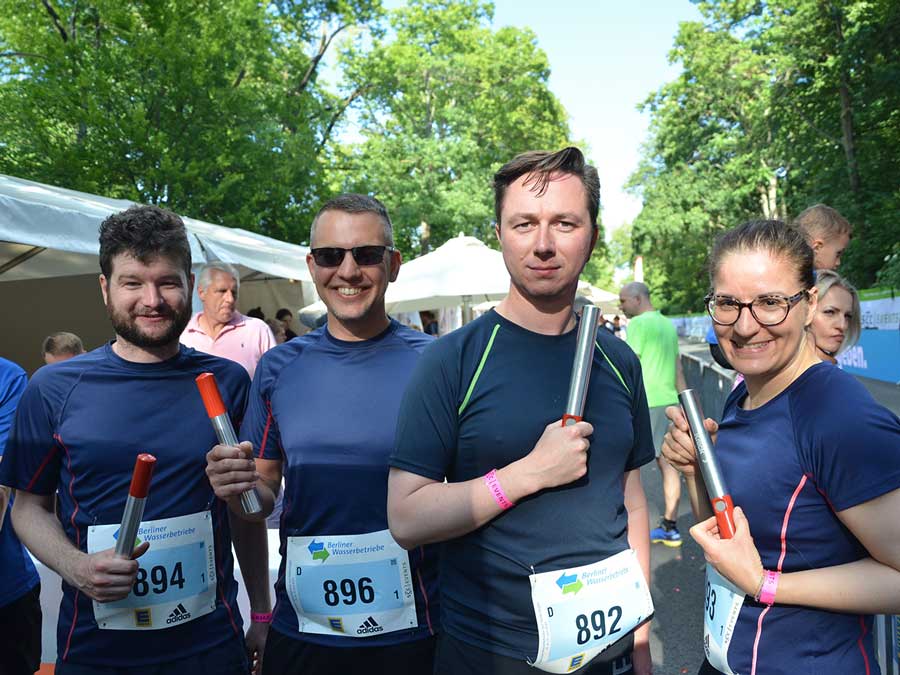
Five times five times five results in running fun with team spirit and beaming photo smile
Knick participated in a Berlin running event with 25 people.
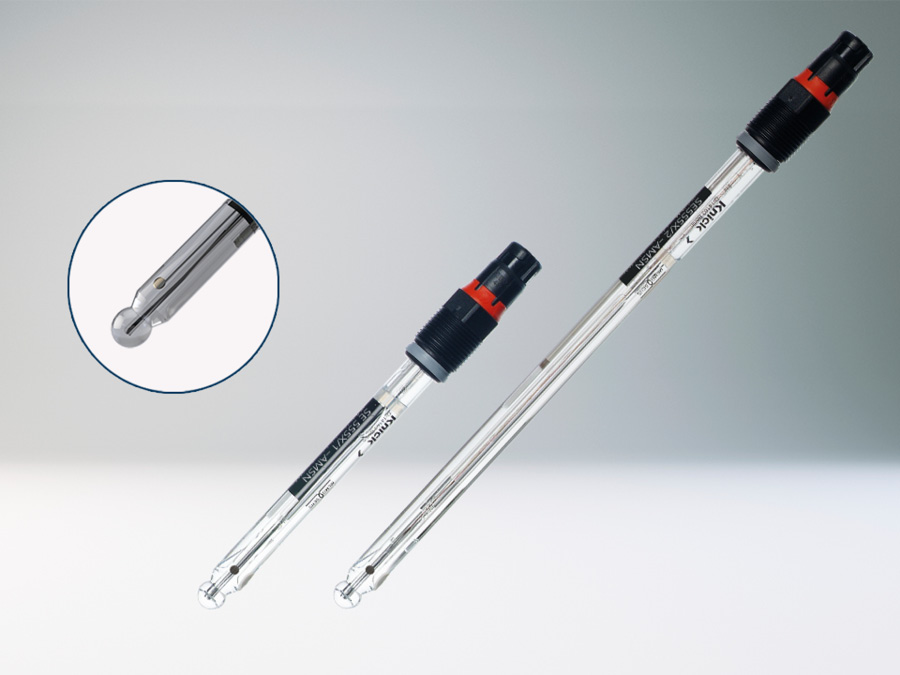
Combined pH- and ORP-Sensor SE555X/*-AMSN
Combined pH and ORP measurement in one sensor SE555 saves place and equipment costs for demanding requirements in the chemical industry, the food sector and for hygienic applications.
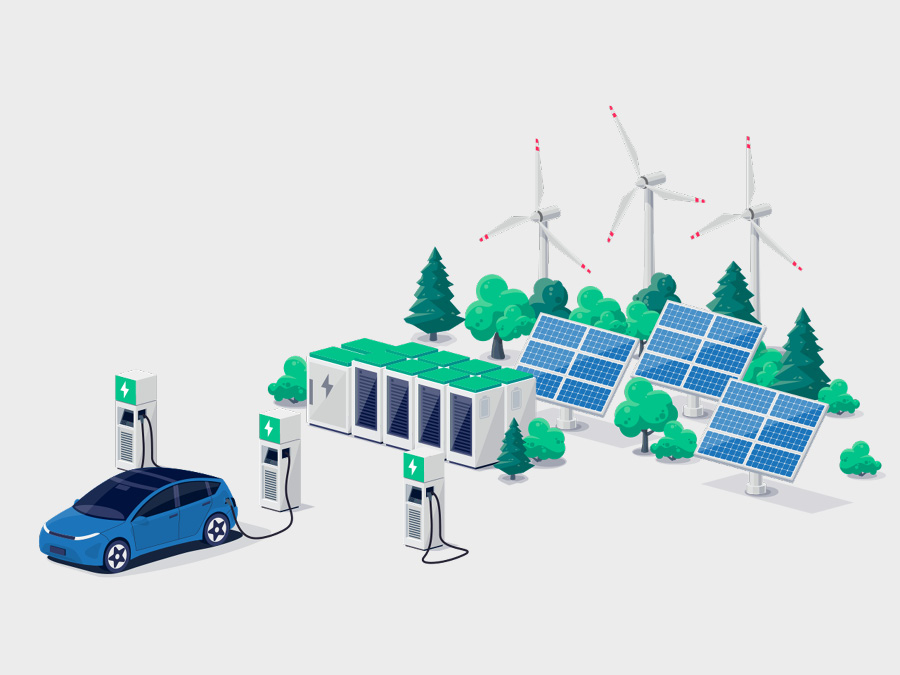
Energy storage - the handshake between renewable energy and electric vehicles
Energy storage technology such as battery and hydrogen are critical for growth and continuous development of renewable energy and e-mobility.
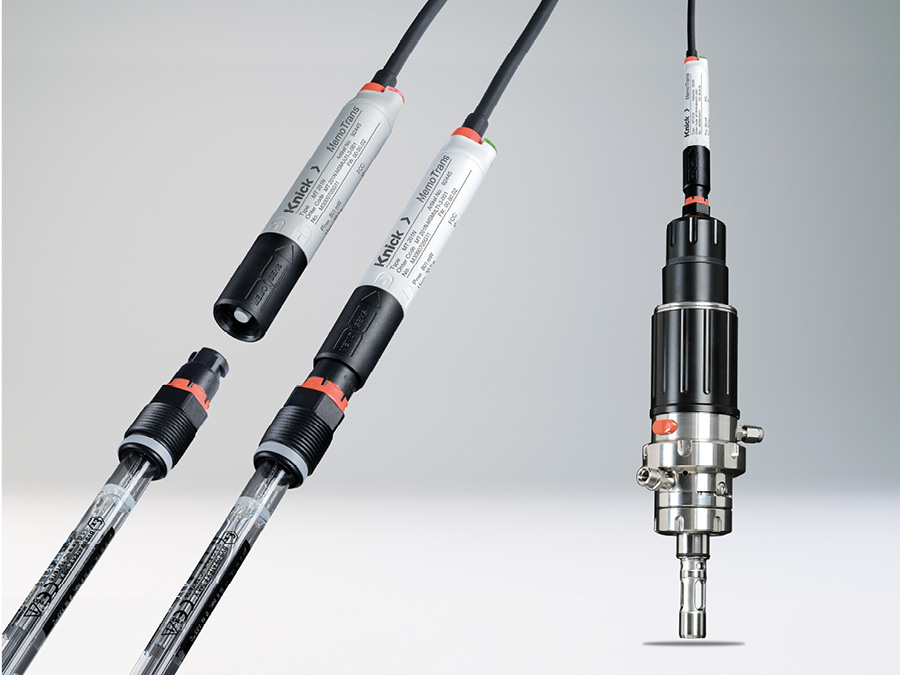
Ultra Compact Transmitter for Memosens Sensors
The new ultra compact MemoTrans MT201 transmitter plugs directly onto the Memosens sensor in the fitting and communicates via 4-20 mA HART protocol.
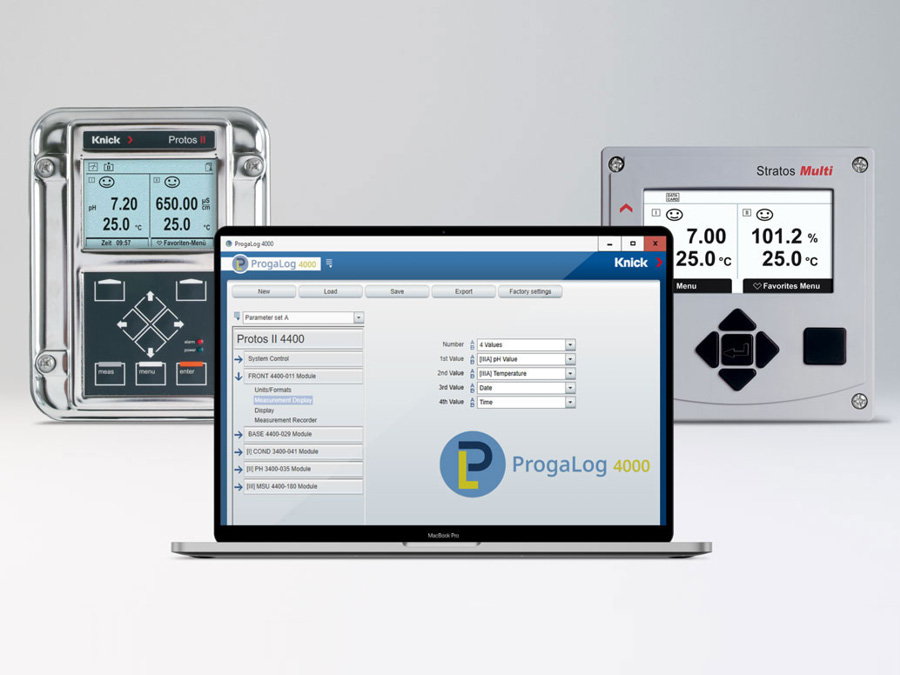
Conveniently configure transmitters offline on a PC - ProgaLog 4000
Conveniently configure all flexibly configurable Stratos Multi and Protos II 4400 transmitters offline, save settings, duplicate for further transmitters, and create documentation for audits.
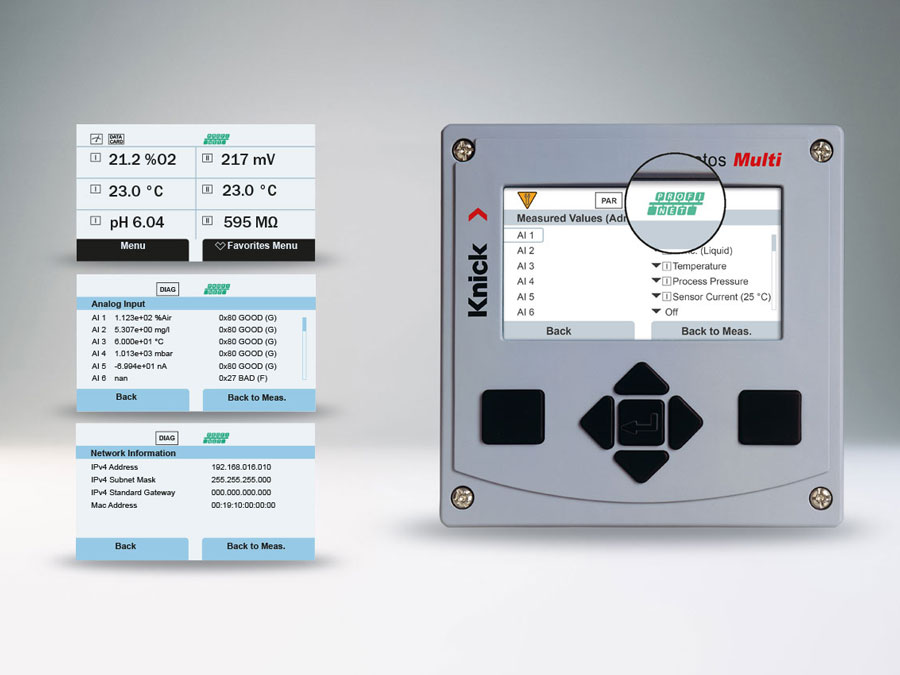
New Stratos Multi E461N transmitter with Profinet
The interface enables continuous communication of process variables and predictive maintenance from the field level to all common process control systems.
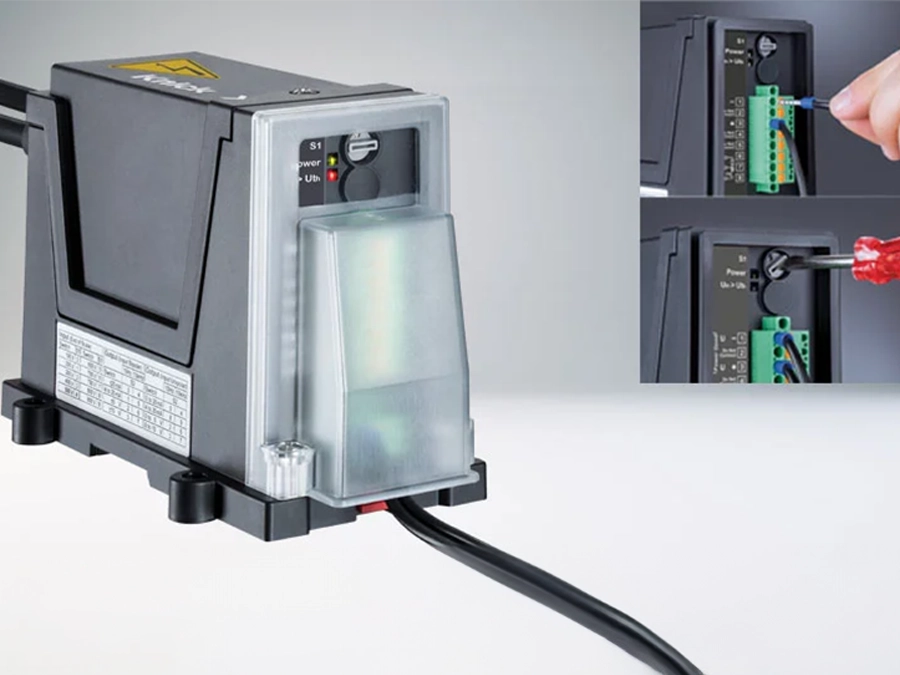
P52000VPD voltage presence detector reliably detects voltages up to 4200 V DC
The new P52000VPD voltage presence detector reliably monitors areas with high voltages and sends a signal to the downstream plant control system when a specified threshold value is reached.
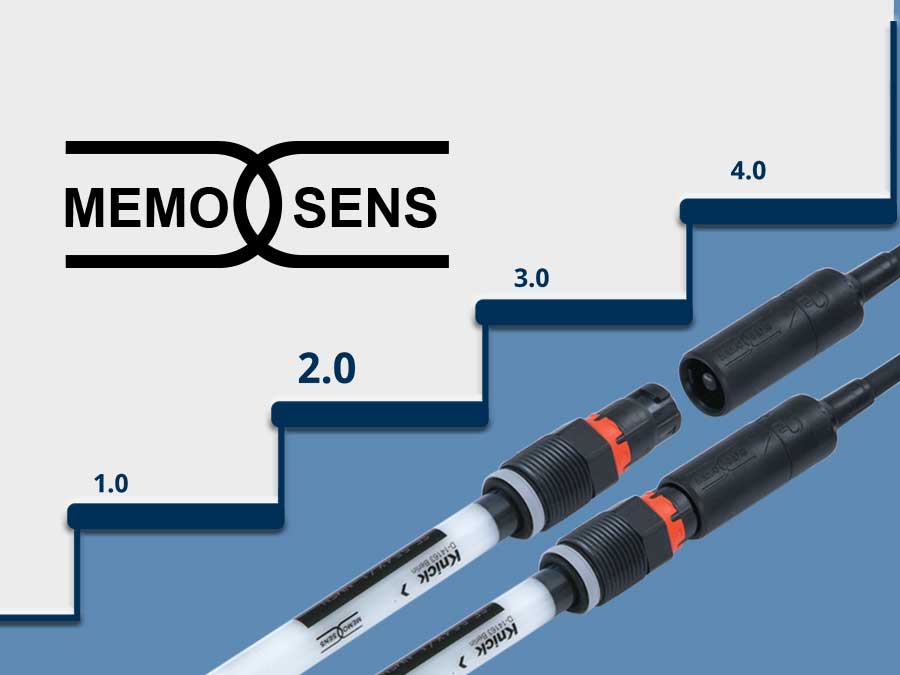
Memosens 2.0: Evolution of digital data transfer
As one of the two initiators of Memosens, Knick is constantly developing the technology.
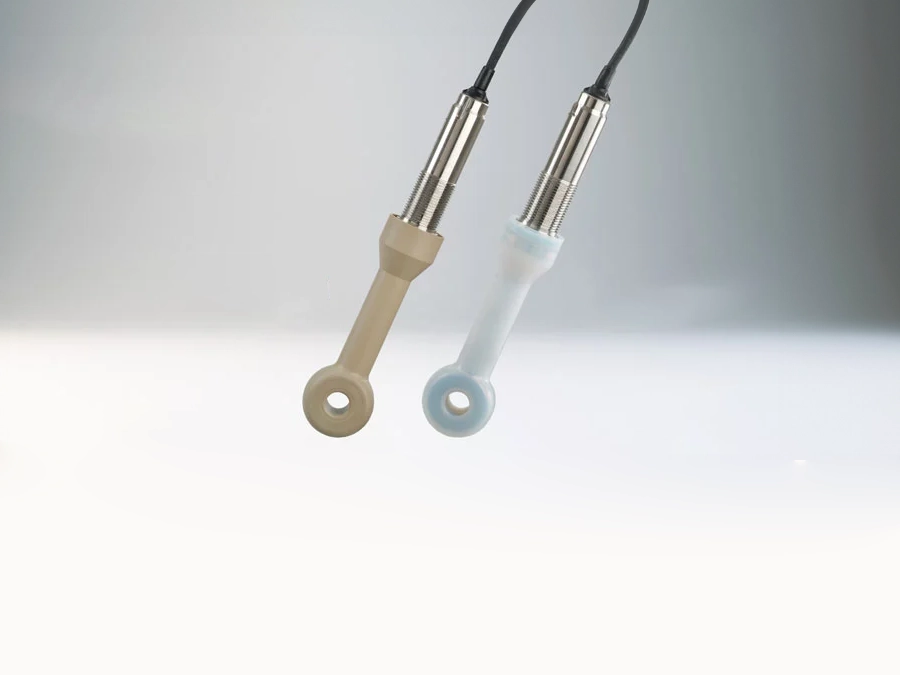
SE655X Digital and SE656X Digital - Digital Conductivity Sensors with Ex Certification
The SE655X digital and SE656X digital conductivity sensors with Memosens protocol are now also available with Ex certification.
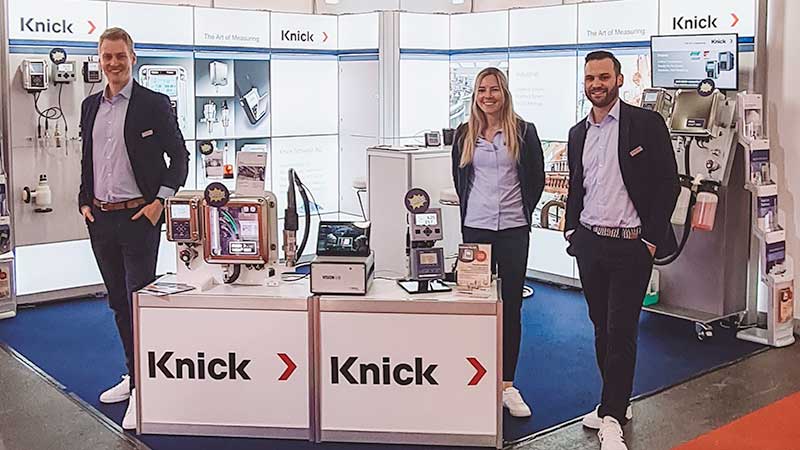
ILMAC 2021 in Basel - Trade Show Review by Knick Schweiz AG
Knick Schweiz AG exhibited at ILMAC in Basel and gives a brief review of what it's like to have finally met customers at the show again.
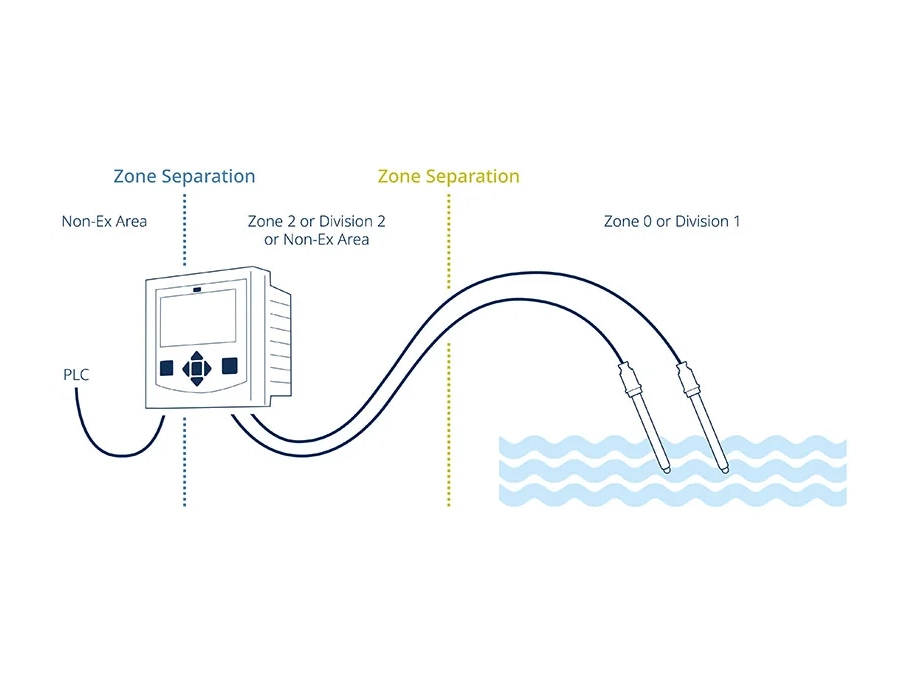
Stratos Multi E401X- Multiparameter Transmitter for Hazardous Locations
The new Multiparameter Transmitter Stratos Multi E401X can now also be used in hazardous locations, installed in Ex Zone 2.
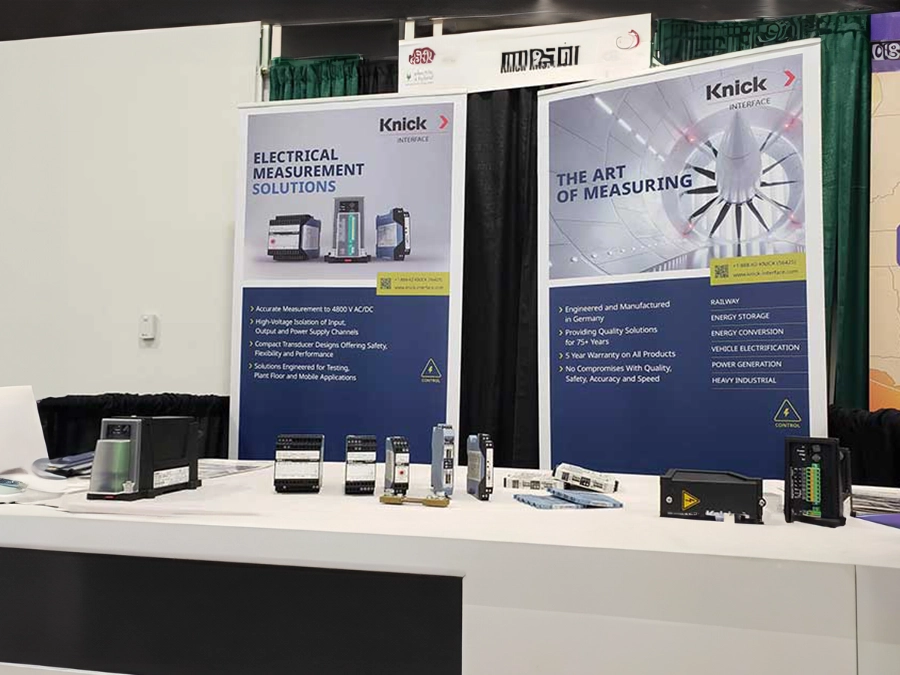
Knick Interface at Battery and Electric & Hybrid Vehicle Technology Expo
Knick will be showcasing high-voltage electrical measurement and signal conversion products.
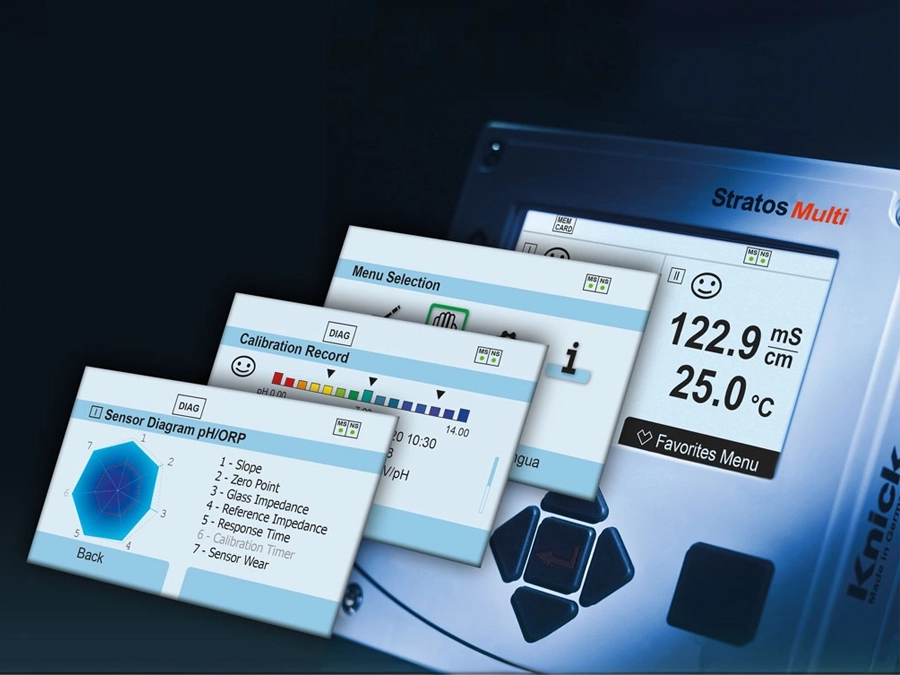
Stratos Multi E471 with EtherNet/IP for process optimization
EtherNet/IP communication protocol allows the transmitter to be easily integrated into Industrial Ethernet networks as PCS.
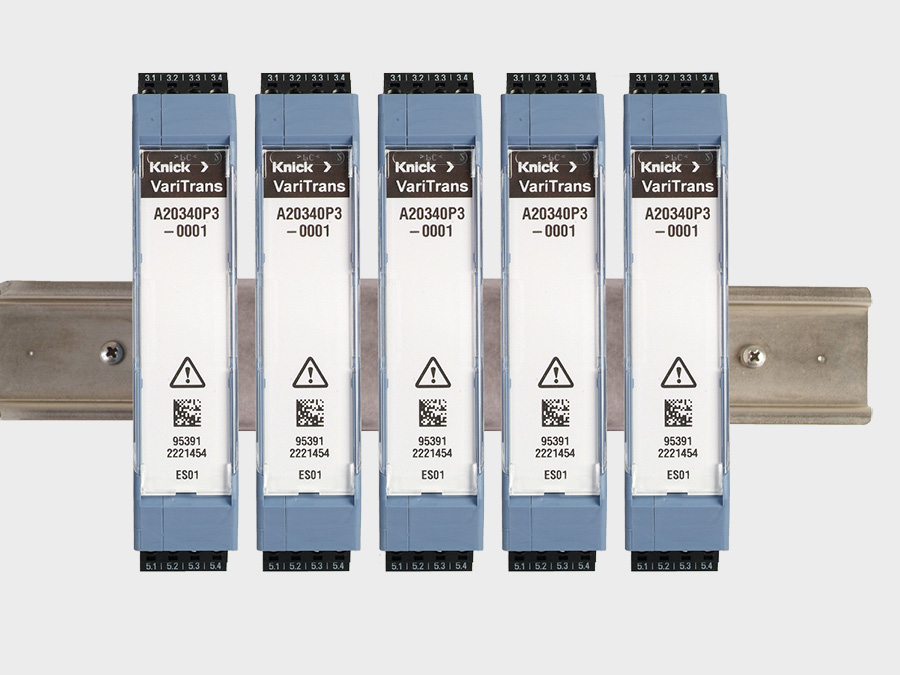
May 2021
Quadruple Standard Signals in Just One Signal Conditioner
The A20340 can output a standard input signal to four calibrated and galvanically isolated outputs in parallel.
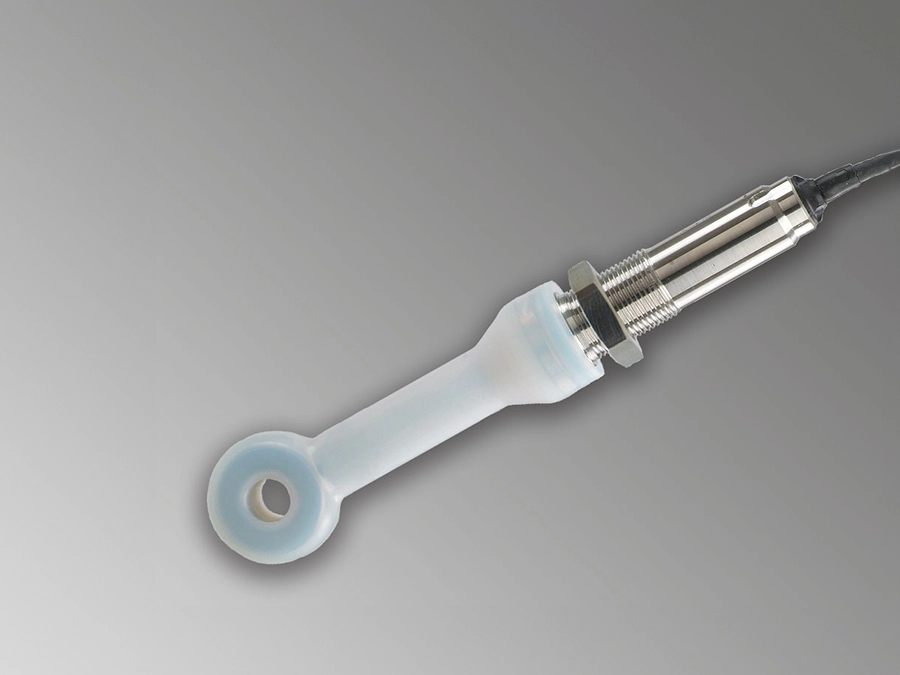
New SE656N digital conductivity sensor
New toroidal Digital Conductivity Sensor with a large measuring range and consisting of PFA for using in aggressive media

Electrical measurement and process analytics for hydrogen production
Knick products optimize hydrogen production in the process and in electrolyser operation.
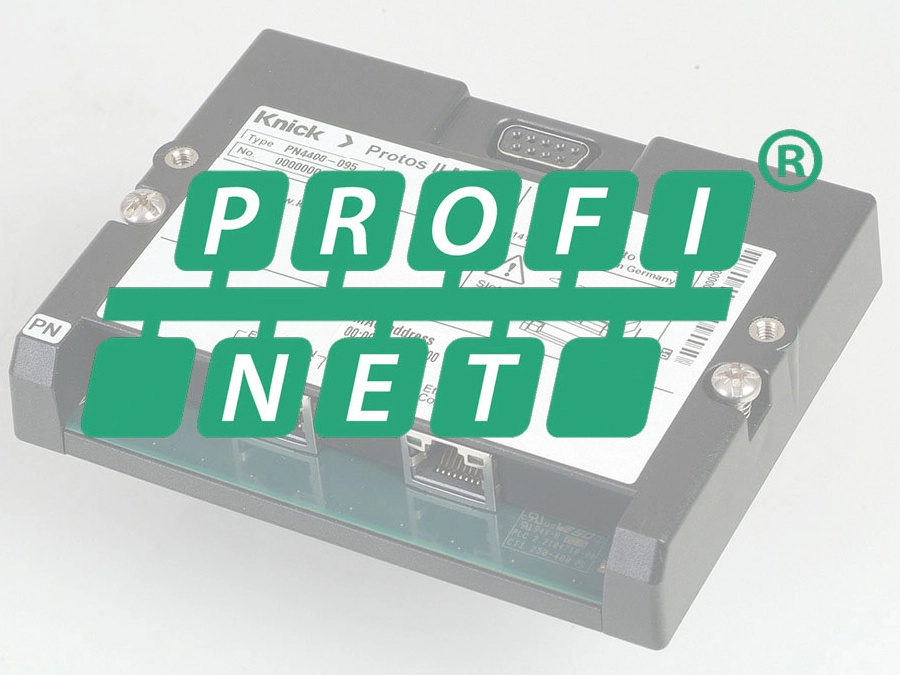
Transmitter for the process industry with PROFINET module
The PROFINET industrial Ethernet standard is becoming an increasingly important aspect of process engineering in the “Industry 4.0” environment.
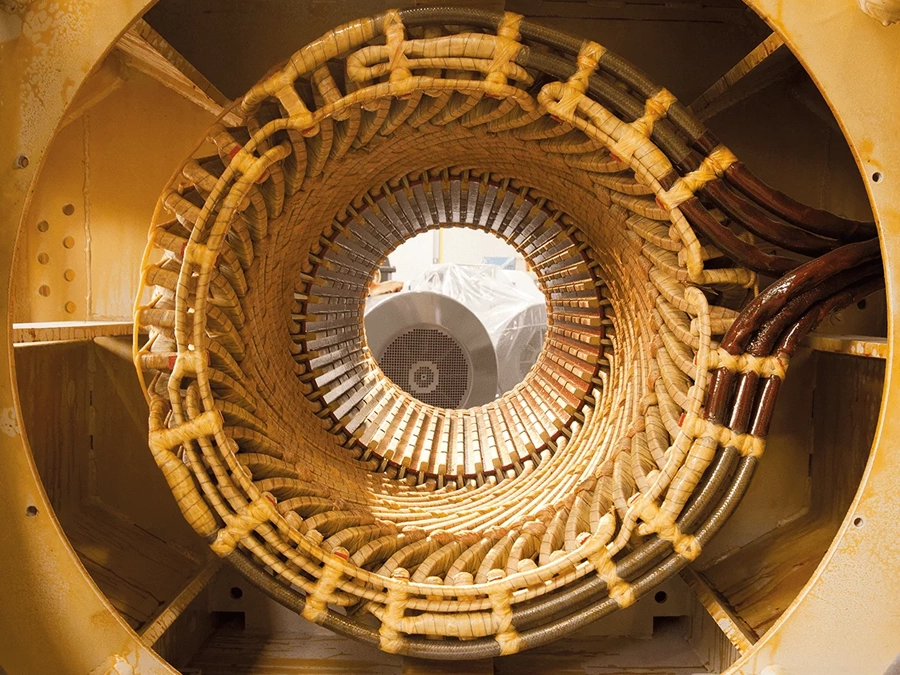
Condition Monitoring of High-Voltage Motors
Having an active predictive maintenance campaign in place for large rotating equipment can be a key strategy for maximizing process uptime.
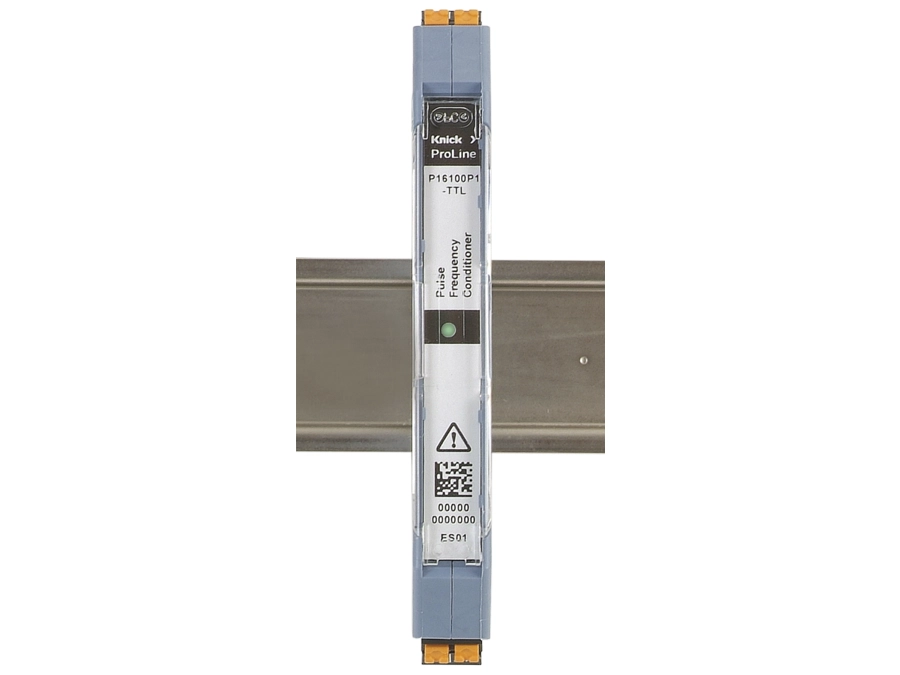
Mar 2021
Pulse frequency conditioner for speed sensors
The new P16000 from Knick is a pulse frequency conditioner that converts frequency signals from speed sensors into standard signals.
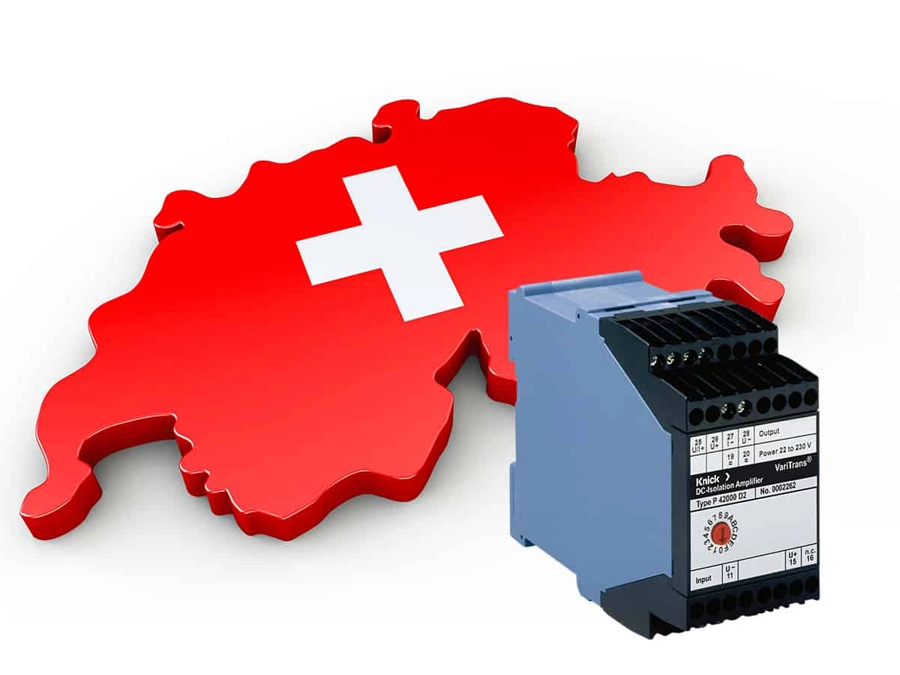
Knick Schweiz AG takes over Interface sales for Swiss customer
The Interface product group includes transmitters and transducers for demanding industrial applications.
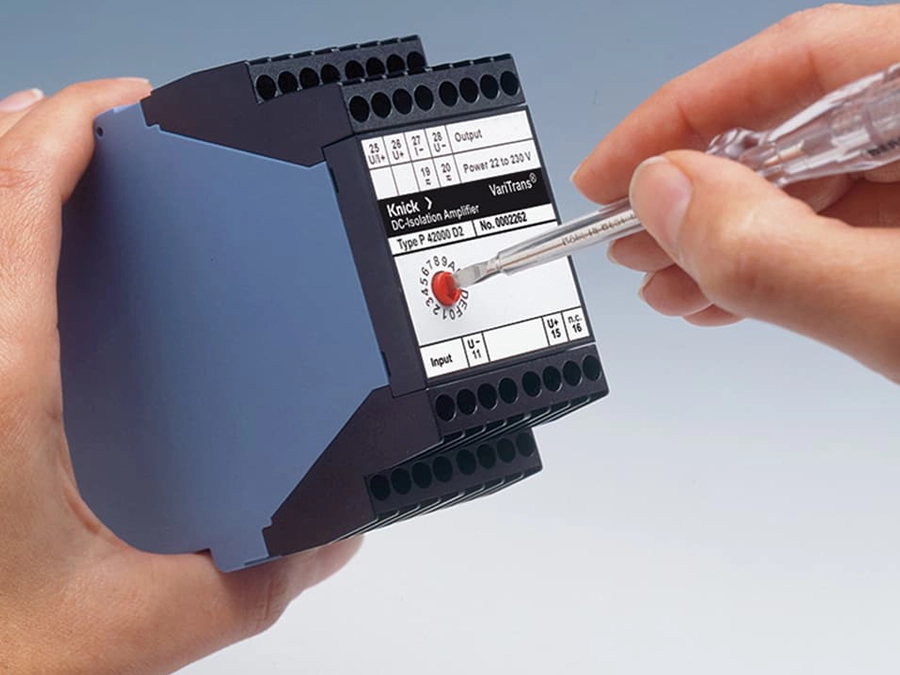
Worldwide smallest transducer up to ±2200 V
The P40000 series from Knick enables reliable voltage measurements from ±50 mV to ±3600 V and current measurements from ±100 mA to ±20 kA.

Importance of broad-range power supplies for DC electrical measurement
Many DC electrical measurement products manufactured by Knick contain universal, also known as broad-range, power supplies.
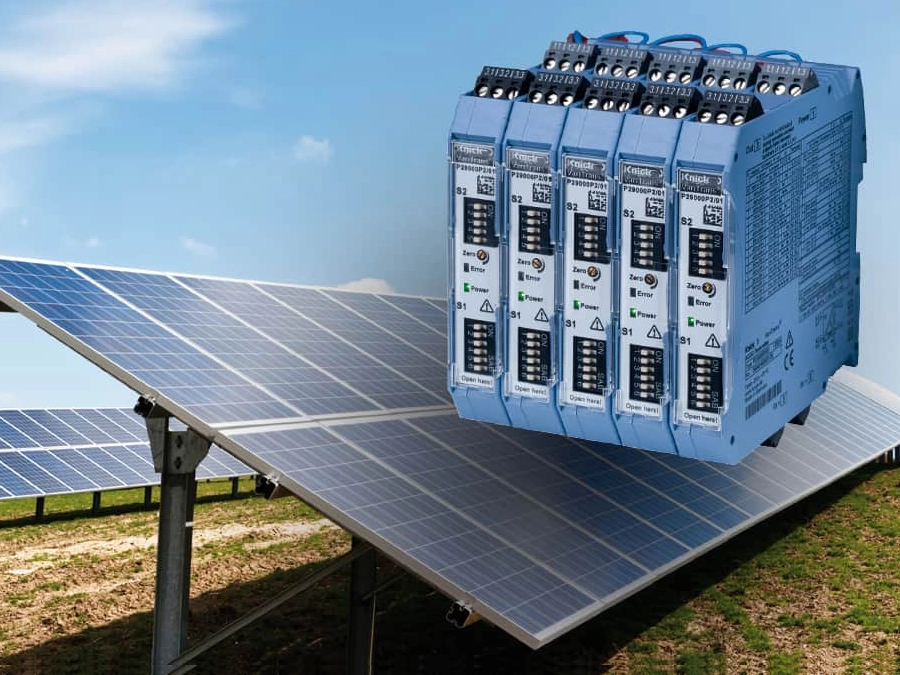
Measuring Photovoltaic Degradation
Photovoltaic (PV) array degradation is an important aspect to consider for system design and installation.
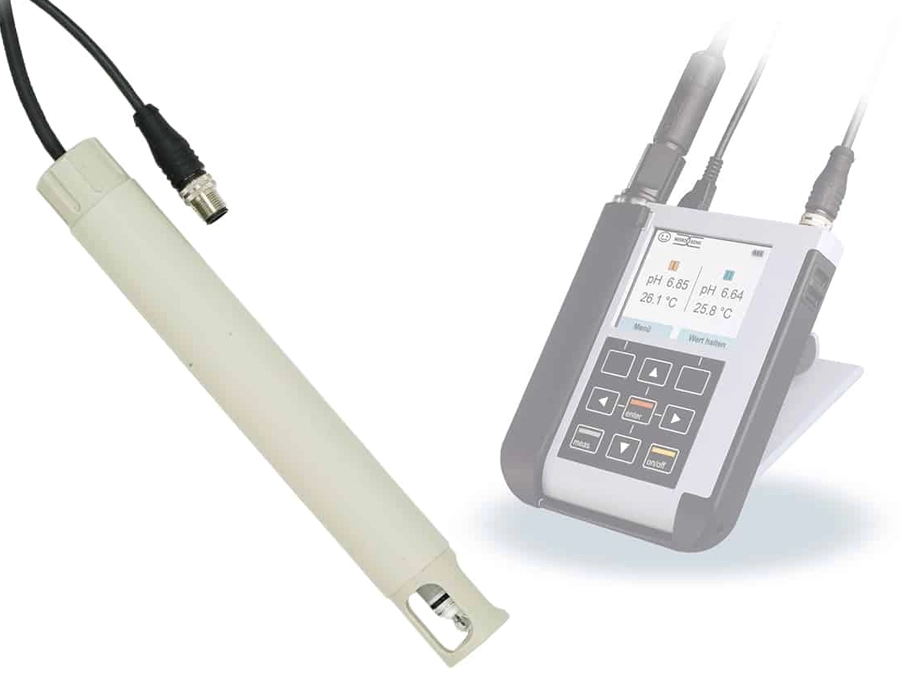
High-quality immersion fitting for mobile applications
ARD 170 enables measurements even in deep water
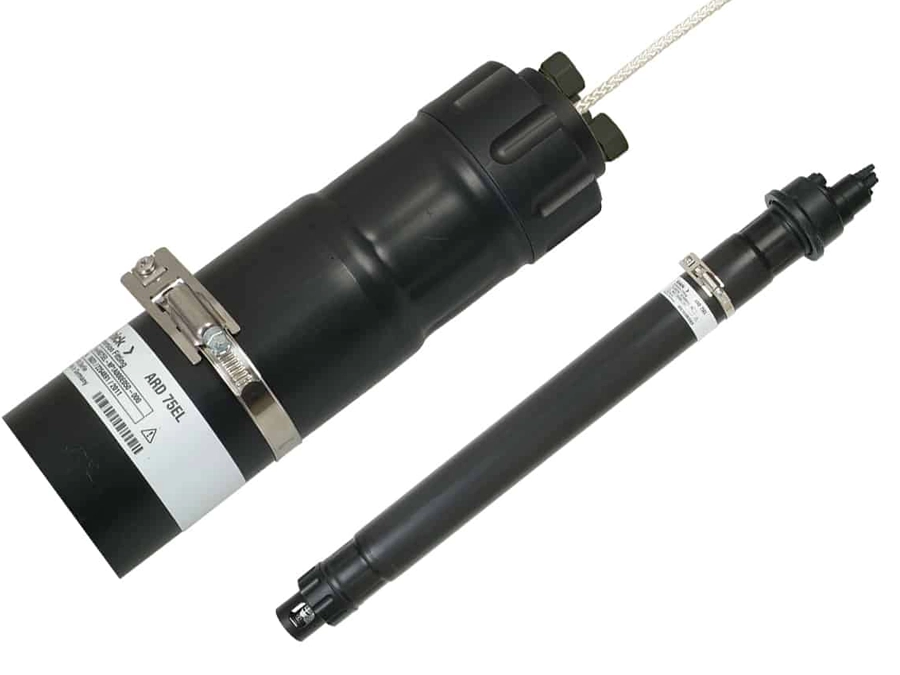
Modular immersion fitting as an electrically conductive variant
Knick is expanding its portfolio of fittings for liquid analysis with additional electrically conductive (EL) variants.
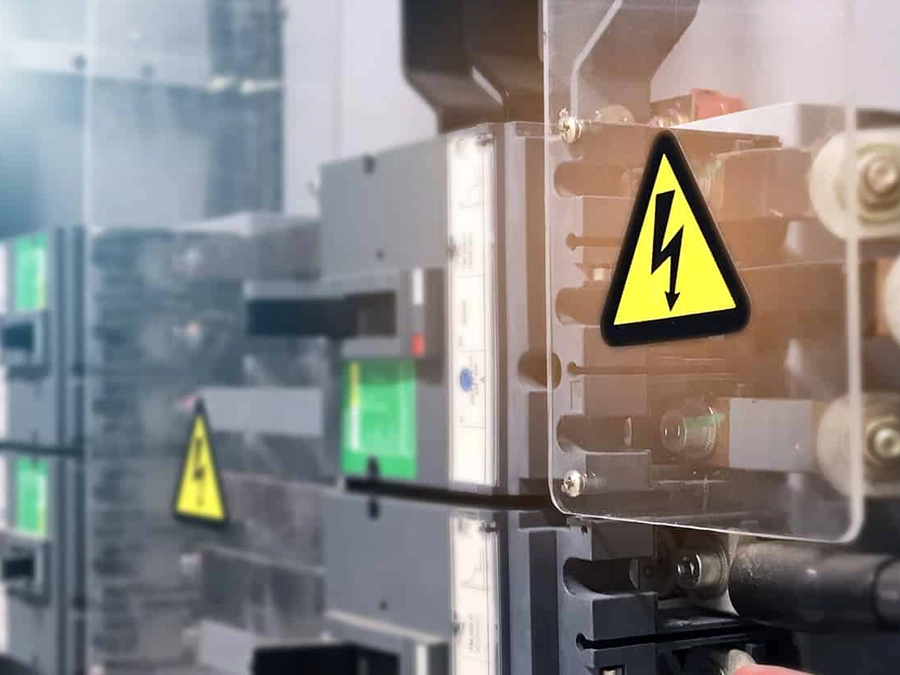
Electrical Measurement Solutions: Control from 480 to 4800 Volts
Voltage and current transducers from Knick bring true control to electrical measurement applications across a wide-range of industries.
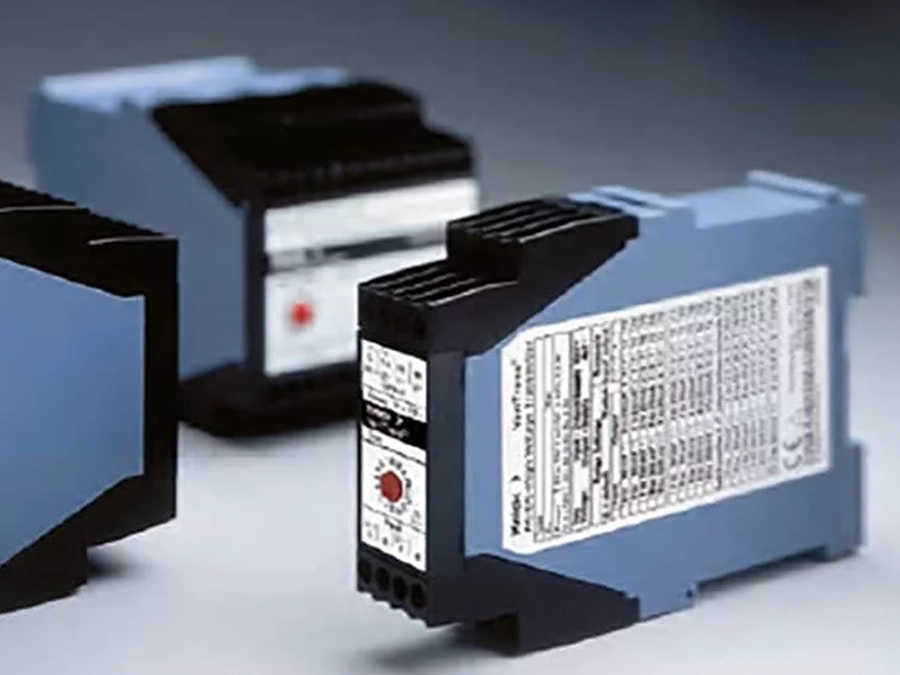
Benefits of High Voltage Transducers versus Instrument Transformers
When a need arises to step voltage in a circuit either up or down for purposes of power transmission or distribution, there is no doubt that transformers are essential.
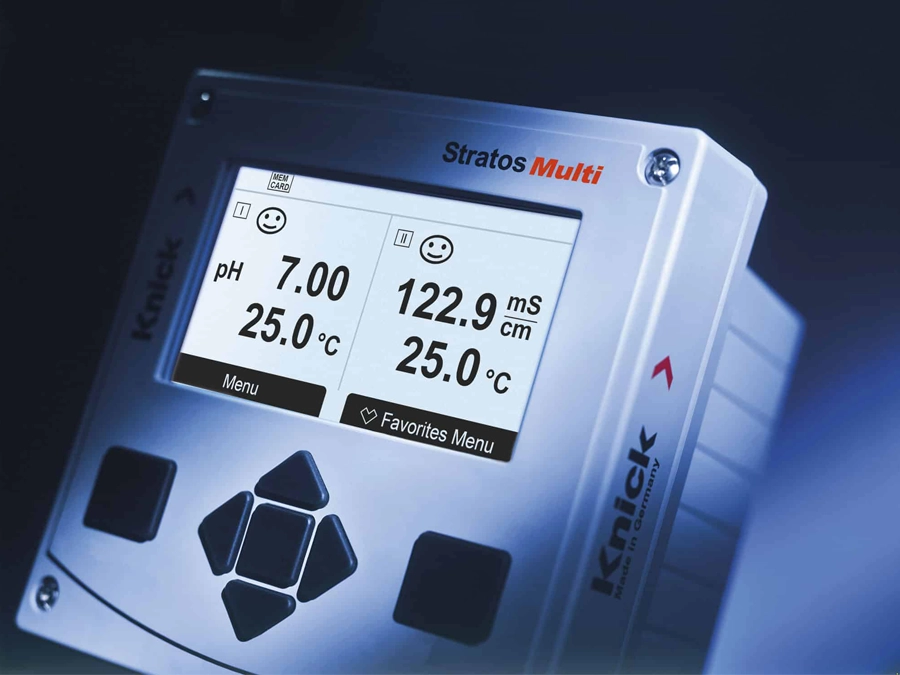
New multiparameter transmitter Stratos Multi
Knick is launching the the next generation in its Stratos analyzer product line.
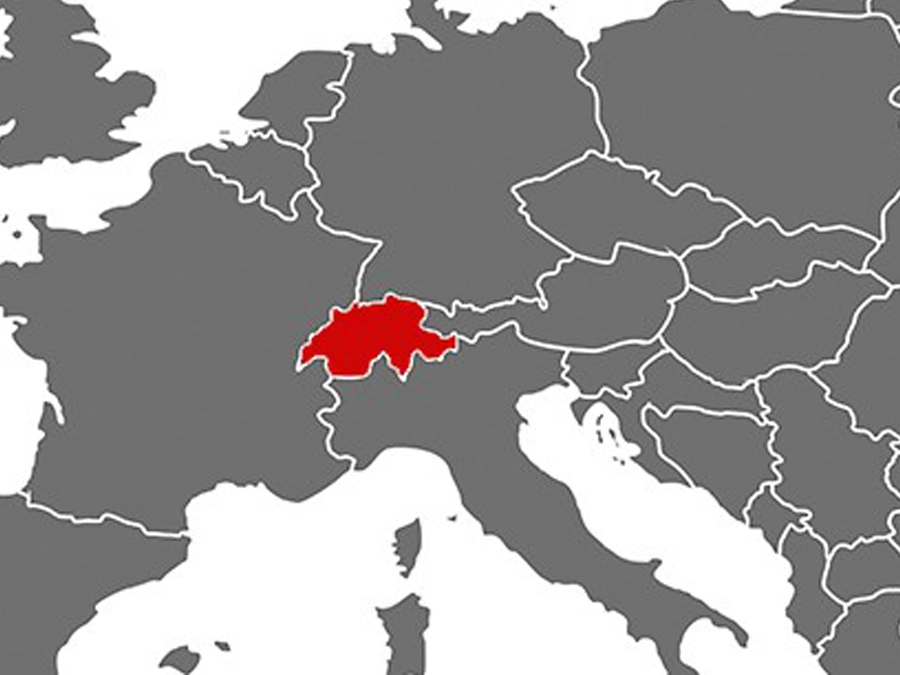
Knick founds Swiss subsidiary
As a further milestone in strengthening international markets, Knick Elektronische Messgeräte GmbH & Co. KG founded the subsidiary Knick Schweiz AG.


Shunt Resistor versus Hall Effect Technology
There are many systems where measurement of large DC currents are needed for performance and safety.
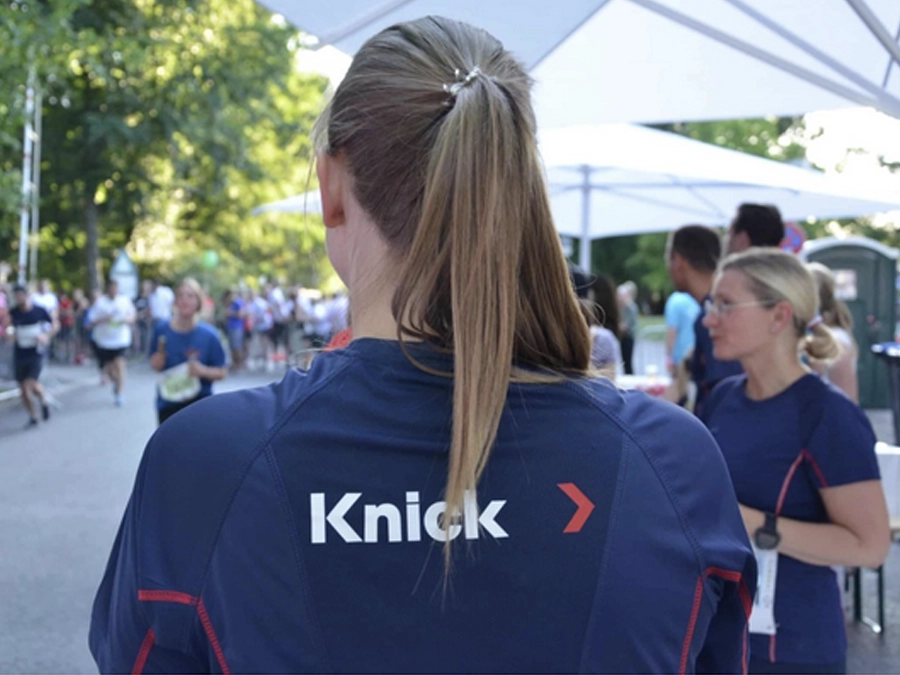
Dec 2018
This was our 2018: A Review
We look back and remember the most important events of the past 12 months.

Mar 2018
MTBF beyond 3000 years: A snap hook for your plant
Failure of equipment on the plant floor can lead to considerable and costly disruption.
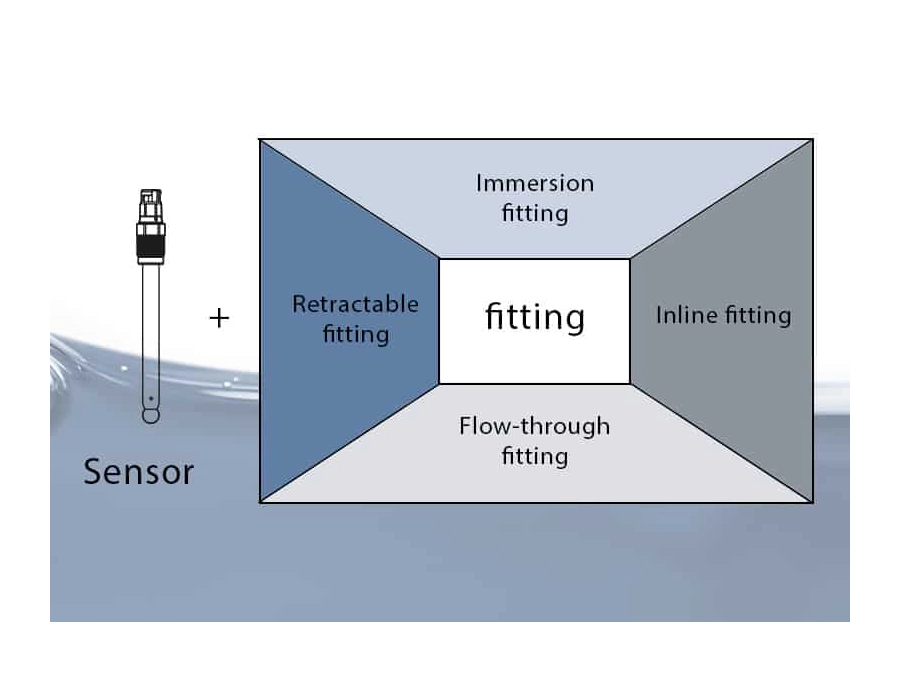
How to get the sensor into the process
Sensors as the direct interface to the process must be exactly matched to the chemistry of the measured medium and to the prevailing pressure and temperature conditions.

Knick Products Comply With UL - What Does That Mean?
There are different assessments and approaches to reach an adequate level of safety. Manufacturers are typically on the “safe” side, if they comply with recognized standards.
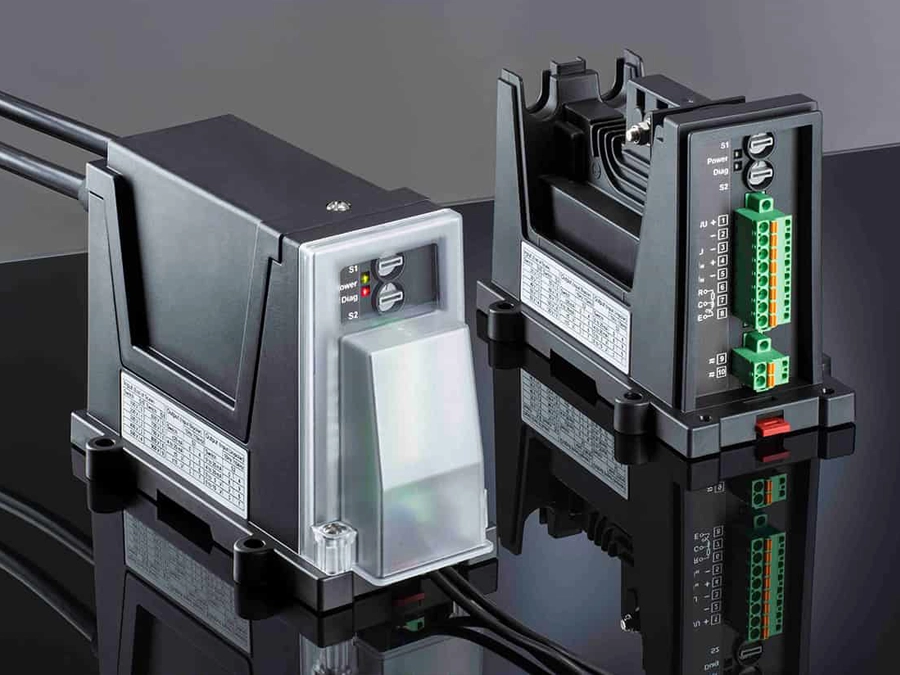
High-voltage transducer offers more safety on railway vehicles
The requirements placed on railway vehicles have increased significantly in recent years. Products for rolling stock need to ensure a higher level of functional safety than ever before.
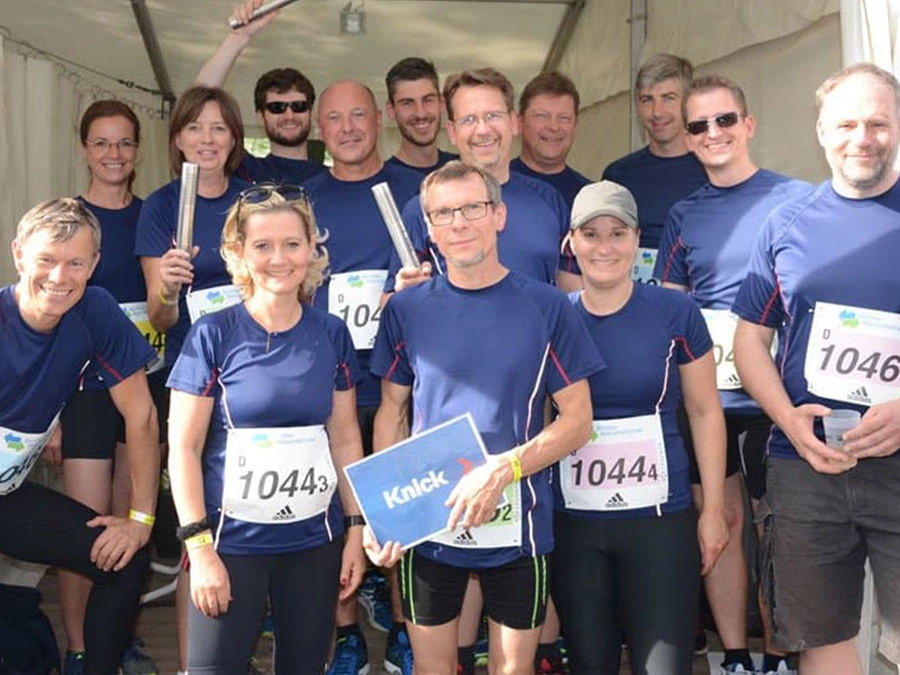
18th “Berliner Wasserbetriebe5x5 km Team Relay” from June 14–16, 2017
Full efforts for the team, followed by fun. This was the motto of the team relay, which took place on three evenings in the Berlin's Tiergarten park.
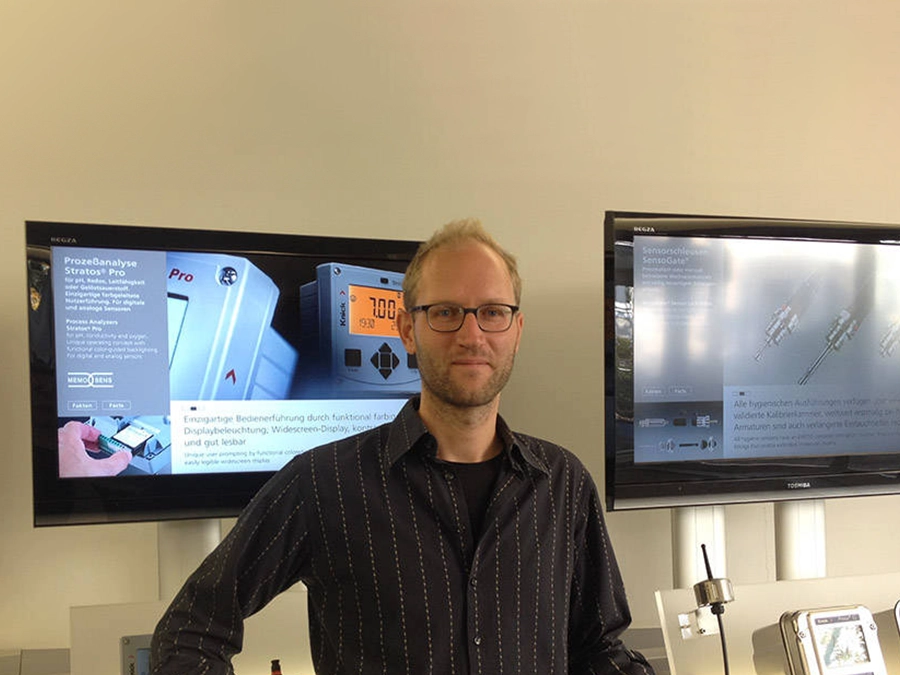
Apr 2017
Sales Engineer at a Medium-Sized Company
Florian Koppe works as a Sales Engineer at Knick and tells us why he chose Knick and what his working day looks like.
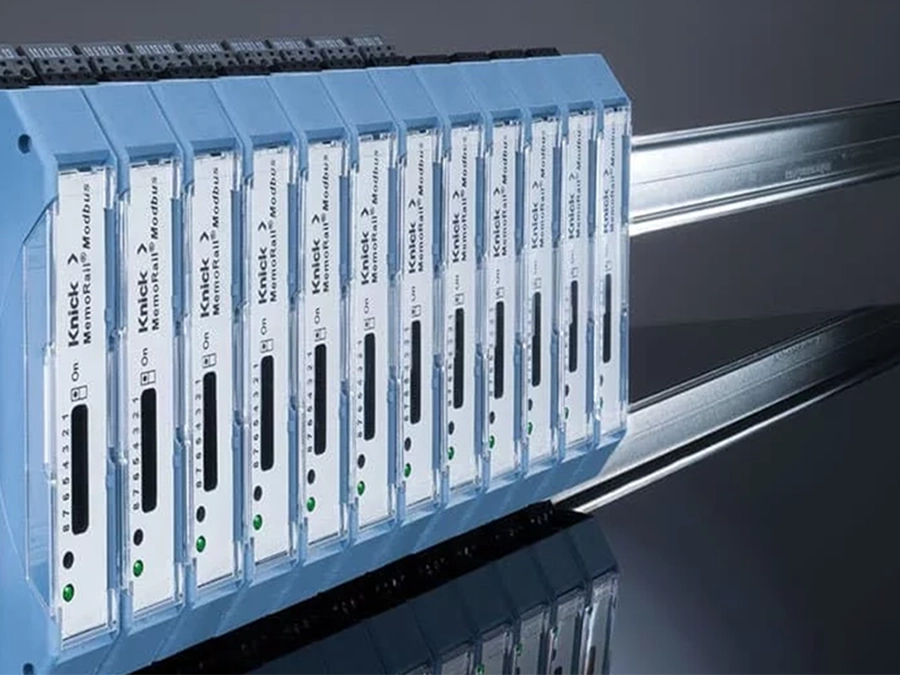
Powerful compact analyzer boosts performance while reducing costs
It has long been common practice when taking pH/ORP, conductivity, and oxygen measurements that a fixed analyzer be mounted near the sensor. The analyzer serves several purposes.

Knick opens a new subsidiary to service North America
Knick Interface LLC will focus on delivering solutions for demanding applications, such as are found in railway and nuclear power industries.

True RMS Measurement with P41000TRMS
Traditional millivolt AC transducers are very susceptible to errors due to their poor insulation and are only designed for pure sinewave measurement.

High-Precision Conductivity Measurement at Extreme Temperature Differences
Pharmaceutical manufacturer, EVER Pharma Jena uses the extremely robust conductivity sensors SE605(H) and SE680 with Memosens technology from Knick.
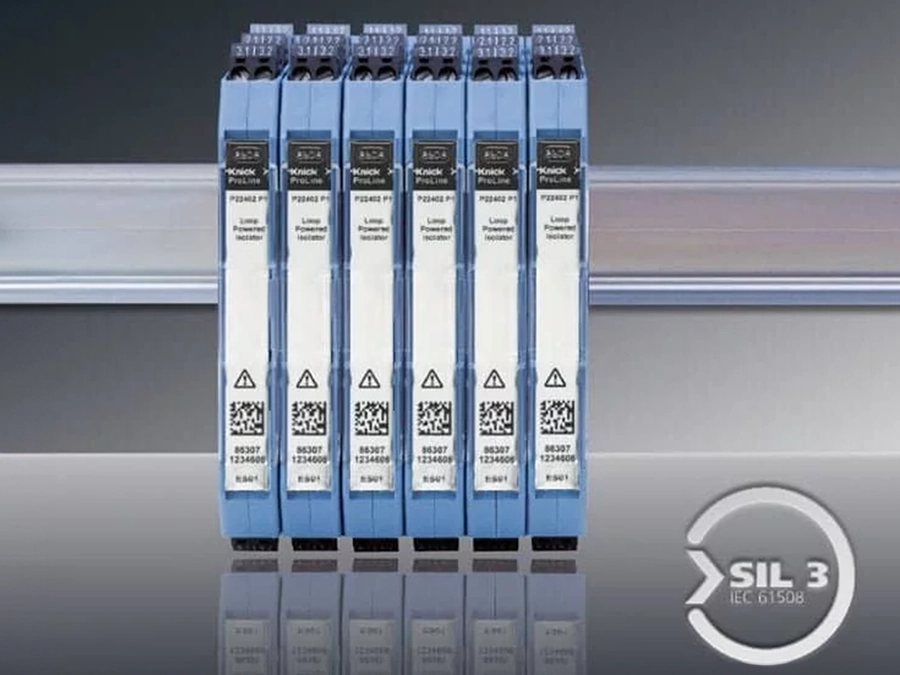
Functional safety and maximum availability can go together
The requirements on operational and safety-related circuits are continuously growing.
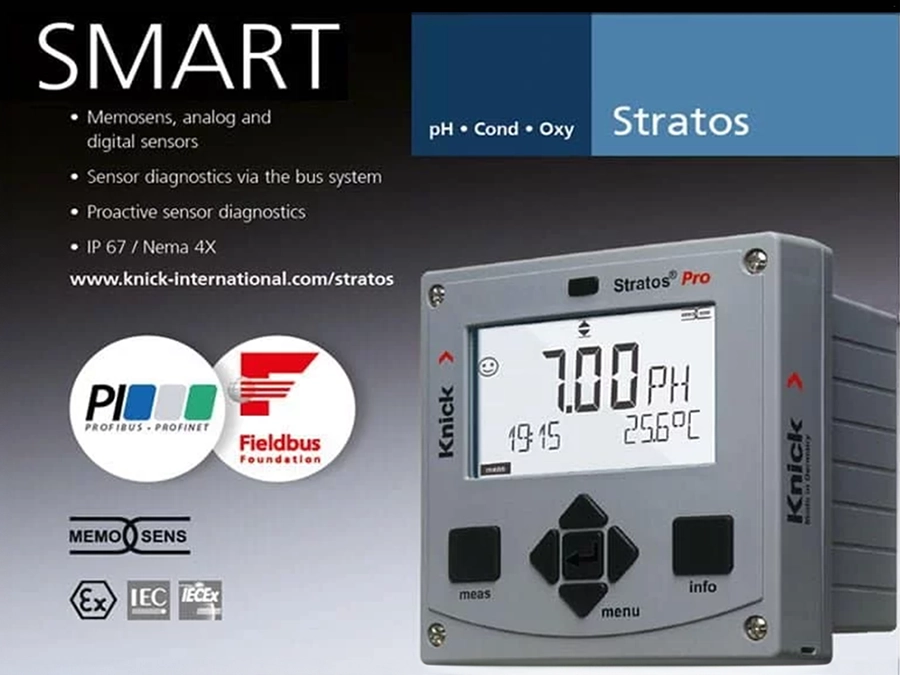
The Big Three of the Process Industry: HART, FF, Profibus
Our Knick multi-parameter analyzers are now available with Profibus and FF interfaces. Even for hazardous areas.


